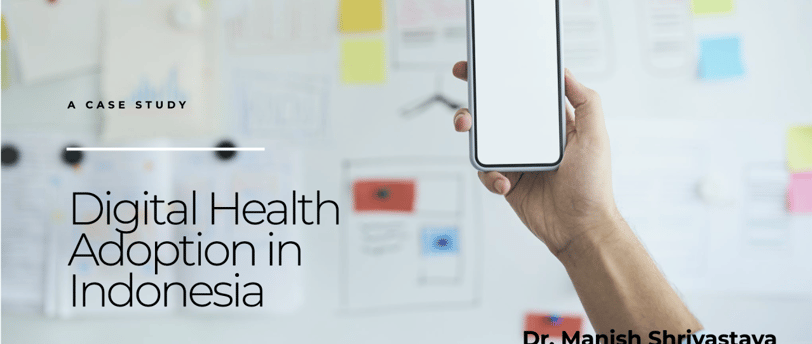Indonesia: A Case Study for Digital Health Adoption
The digital revolution is sweeping across all facets of life, and healthcare is no exception. Across the Asia-Pacific (APAC) region, including Indonesia, digital health technologies are rapidly transforming the way we deliver and manage healthcare.
Dr. Manish Shrivastava
1/14/20252 min read


The Booming Digital Health Market
Digital health encompasses a vast array of technologies, from established tools like electronic medical records (EMRs) to cutting-edge advancements in wearable devices and artificial intelligence (AI). This burgeoning market is projected to grow exponentially, with estimates ranging from US$427 billion by 2027 (1) to a staggering US$1.5 trillion by 2030.
Defining Digital Health in Action
The diversity of digital health tools makes a single definition challenging. These technologies can be:
Patient-facing: Mobile apps, wearables, and accessible digital health records.
Health system-focused: Health information management systems for improved efficiency.
Delivery modalities: Telemedicine, remote patient monitoring, and AI-powered diagnostics.
The Transformative Power of Digital Health
The COVID-19 pandemic has demonstrably shown the transformative power of digital health tools in managing public health crises. These same tools have the potential to revolutionize healthcare systems globally, including day-to-day tasks like health promotion and chronic disease management.
However, maximizing the benefits of digital health requires a secure flow of patient data. Robust regulations are crucial to ensure data security and patient privacy. A data-driven approach powered by digital health tools can pave the way for:
Population health monitoring
Data-driven policymaking
More equitable and personalized healthcare
Strengthened healthcare systems and Universal Health Coverage (UHC)
The World Health Organization (WHO) recognizes the strategic importance of digital health in achieving its "triple billion" targets: ensuring UHC for one billion people, protecting one billion from health emergencies, and improving health and well-being for another billion (9).
Digital Health in APAC: A Region of Diversity
Across APAC, strong forces are driving the exploration of digital health solutions. These include:
Aging populations
Rising demand for cost-effective healthcare
The pursuit of UHC, particularly in low- and middle-income countries
The region exhibits significant diversity in terms of:
Income and development levels
Population size and health system structure
Healthcare financing ecosystems
This translates to a wide range of readiness for digital health adoption. For example, while some countries like Japan and India still rely heavily on paper-based records, others like Singapore and Taiwan are leading the way in digital health data collection and management.
Digital Health Ecosystems in APAC
Digital health ecosystems are emerging driven by private sector interests, care networks, insurers, and the public. However, detailed information regarding the extent of digital health adoption in the region remains limited (9). These ecosystems are valued by different players because they offer benefits like:
Improved efficiency
Enhanced patient engagement
Better resource allocation
Harnessing the Transformative Potential: The Need for an Enabling Environment
While digital health technologies themselves cannot solely improve patient outcomes or strengthen healthcare systems, they play a vital role when coupled with an enabling environment. This environment requires strong government leadership and a foundation of policy and strategy.
Indonesia: A Case Study for Digital Health Adoption
Indonesia presents a unique case within APAC. With its vast population, diverse geography, and ongoing healthcare challenges, Indonesia stands to gain significantly from embracing digital health solutions. Here are some key considerations for Indonesia's digital health journey:
Infrastructure development: Ensuring internet connectivity across the archipelago is crucial.
Policy and regulatory frameworks: Establishing regulations that protect patient privacy while promoting innovation is essential.
Capacity building: Investing in healthcare workforce training to develop competency in utilizing digital health tools.
Public awareness: Educating citizens about the benefits and security measures of digital health will boost adoption.
By addressing these challenges and leveraging the vast potential of digital health, Indonesia can transform its healthcare landscape, improve patient experiences, and contribute to achieving UHC.
Connect
Your partner in growth, market expansion, and digital execution across industries.
shri@medora.biz
+62-822-10-20-7000
© 2025. All rights reserved.
